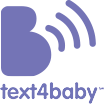Resources for New Moms
- Baby’s Development
- Tips & Resources
- Feeding Baby
- Health & Safety
- Well-Child Visits & Vaccines
- Well-Child Visit Guides
- Vaccines
- Finding Free Vaccines
- Making Shots Less Stressful
- Protect Baby from Pertussis (Whooping Cough)
- Vaccine Information for Babies
- Vaccines: DTaP
- Vaccines: MMRV
- Vaccines: Hepatitis A
- Vaccines: Hepatitis B
- Vaccines: Hib
- Vaccines: Rotavirus
- Vaccines: PCV
- Vaccines: Polio (IPV)
- Vaccines: Seasonal Flu
- Vaccines: Varicella
- Parenting
Newborn Jaundice
Q:
My first baby had jaundice. I have forgotten--are there tests to know if your baby has jaundice?
Yes
Correct!
In the hospital, if a baby's skin looks yellow or the baby has risk factors that make jaundice more likely, a skin sensor or blood test will measure the level of bilirubin. Doctors may recommend a test for babies with darker skin since it may be difficult to tell if a baby has jaundice just by looking.
No
Incorrect!
In the hospital, if a baby's skin looks yellow or the baby has risk factors that make jaundice more likely, a skin sensor or blood test will measure the level of bilirubin. Doctors may recommend a test for babies with darker skin since it may be difficult to tell if a baby has jaundice just by looking.
What is jaundice?
Jaundice is a yellow discoloration of the skin and the whites of the eyes. It is caused by a build-up in the blood of a yellow pigment called bilirubin. Jaundice occurs in over 50% of all newborns. Skin usually starts to turn yellow a few days after birth. If you think your baby has a yellowish color, call your baby’s provider.
Most babies with jaundice are alert and eat and sleep normally. However, you should call the baby’s provider immediately or seek emergency medical care if a baby with jaundice:
- Appears very yellow.
- Is hard to wake.
- Sucks or nurses poorly.
- Appears floppy or stiff (or alternates between both).
- Arches the neck or back backwards.
- Develops a high-pitched cry or fever.
- Has unusual eye movements.
How is jaundice treated?
Most babies with jaundice do not need treatment. Providers sometimes suggest steps parents can take at home to help clear up mild to moderate jaundice. Your baby’s provider may recommend increasing the number of feedings (including supplementing with formula for a short period of time if breastfeeding) to encourage more bowel movements, which helps eliminate bilirubin.
If a baby has moderate to severe jaundice that does not clear up on its own, treatment is recommended:
Phototherapy: The baby, wearing only a small diaper, is placed under special white or blue lights called bili-lights. Some babies receive phototherapy before discharge from the newborn nursery or are admitted to the hospital for a few days for phototherapy, while others are treated at home.
Exchange transfusions: Babies who do not respond to phototherapy and continue to have rising or dangerously high bilirubin levels may need to be treated with a special kind of blood transfusion.

